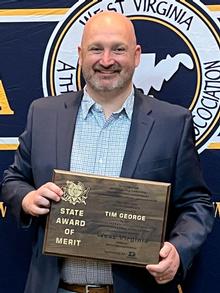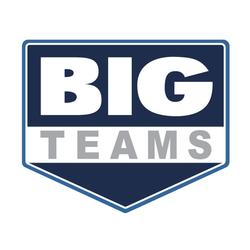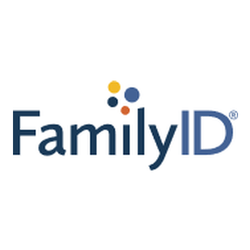Spring Conference 2024 LTC Course Descriptions
LTC 503 Athletic Administration: Enhancing Organization Management
This course is a companion course to Strategies for Organizational Management and outlines an approach to the fundamentals and methods of athletic administration and alerts and educates athletic administrators on potential problems and possible solutions in areas such as special events, public relations, awards, fundraising, and Booster Clubs. The course also touches upon ways to improve citizenship and sportsmanship through positive initiatives. Athletic Administrators will have a hands-on creating handbooks and a strategic plan for their school. Required for: RAA, RMSAA, CAA and CMAA Certification
LTC 504 Athletic Administration: Legal Issues I (Liability for Sports Injuries & Risk Management)
This course provides in-depth coverage of the legal standards governing liability for sports injuries, including the duties imposed by courts and legislatures on athletics administrators, coaches, athletic trainers, and other athletics personnel related to safeguarding the health and well-being of student-athletes and other persons in school sports environments. Strategies are provided for developing, implementing, and documenting an effective risk management program for interscholastic athletics. Required for: CAA, RMSAA, CIAA and CMAA certification
LTC 506 Athletic Administration: Legal Issues II (Title IX & Sexual Harassment)
This course provides in-depth coverage of the legal standards regarding Title IX compliance and gender equity assurance for interscholastic athletics programs. This includes the methodology for a school to perform a Title IX self-audit in order to proactively identify problem areas and necessary corrective actions to satisfy all applicable Title IX legal mandates. This course offers extensive coverage of the legal standards governing sexual harassment and sexual violence in school sports programs and strategies for developing, implementing, and documenting an effective anti-sexual harassment policy. Required for: CAA and CMAA certification
LTC 508 Athletic Administration: Legal Issues III (Hazing, Constitutional Law, Disabilities Law, & Employment & Labor Law)
This course provides in-depth coverage of the legal standards governing hazing in interscholastic athletics programs and strategies for developing, implementing, and documenting an effective anti-hazing policy. There is also extensive coverage of the constitutional rights of student-athletes that must be respected by schools when sanctioning athletes for misconduct, the impact of federal disabilities legislation on school sports programs, and the employment and labor law issues related to the administration of interscholastic athletics programs, in particular the minimum wage and overtime requirements of the federal Fair Labor Standards Act. Required for: CMAA Certification
LTC 619 Athletic Administration: Enhancing the Game Experience through Curb Appeal
This course highlights areas which the athletic administrator should consider prior to hosting visiting schools, spectators, and participants for athletic events. The opinion of a school, the community, and the school’s administration are often formed based on first impressions experienced when attending an athletic event. These impressions/experiences are built upon not only the visual appearance of the facility but the overall preparedness of the facility from entering the main gate, sitting in the stands, and leaving upon completion of the event. The course discusses the power of being prepared, and how communications can enhance the fans overall game experience. Strategies, methods, and illustrations will provide for maintaining structures through a comprehensive study of “best operational management practices” geared toward an enjoyable fan experience.
LTC 630 Athletic Administration: Interscholastic Contest Management – Planning, Preparation and Methods
This course examines the historic foundations and precedents for contest management as an extension of educationally sound sports programs. Planning methods for contest management are examined including selection of supervisory personnel, suggested need assessment tools, and checklists for the development of supervision plans and policies. In addition, an overview of methods is suggested for creation of an educationally sound competition environment among players, coaches, students, and other spectators. The course emphasizes the need for flexible plans and responses to various contest situations and contingencies.
LTC 701 Athletic Administration: Administration and Application of Middle School Athletic Programs
This course provides the necessary strategies, methods, and resources to develop and implement middle school athletic programs and concentrates on the role of the middle school coach and coaching principles. Middle school athletics is an essential part of the total educational process, and the coach is a critical component in a developmentally sound and educationally compatible program. Required for RMSAA.
LTC 706 Athletic Administration: Coaching Coaches to be Leadership Educators
This course will examine the training, preparation, and guiding of coaches, by athletic administrators, to understand the inherent tasks related to education-based athletics. The administrator will be better prepared to integrate new learning opportunities for coaches through the nurturing of suggested coaching knowledge, skills, behaviors, and attitudes. Enrollees in this course will be better empowered as the athletic administrator, to deal with the constant turnover and training of coaches that can demand much of the administrator’s time.
LTC 790 Athletic Administration: Leadership Training Instructional Methods and Techniques
Since its inception, the integrity of the NIAAA LTI program has been maintained through the consistent and accurate delivery of course curricula. LTC 790 ensures the consistent and accurate delivery of all LTI courses by first providing instructors with an awareness of the expectations that are placed upon them as course instructors, and then by providing instructors with the appropriate instructional strategies, methods, and techniques necessary to properly deliver the courses to administrators. Current LTI National Faculty Instructors guide potential LTI instructors through a series of exercises and interactions that demonstrate best practices for the successful teaching all LTI courses. To become an LTI instructor, individuals must complete LTC 501, LTC 790 and the course the individual will be instructing. Required for: LTI instructors




.png)










.png)